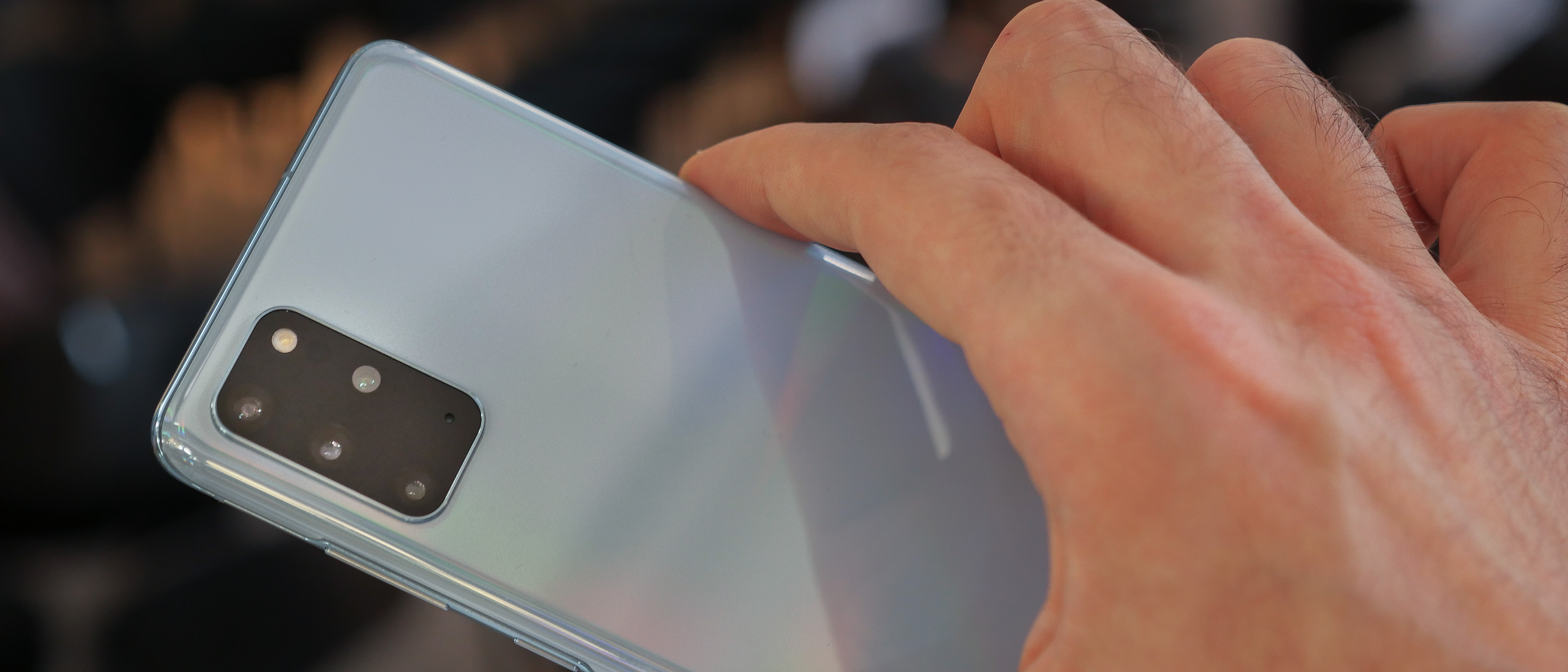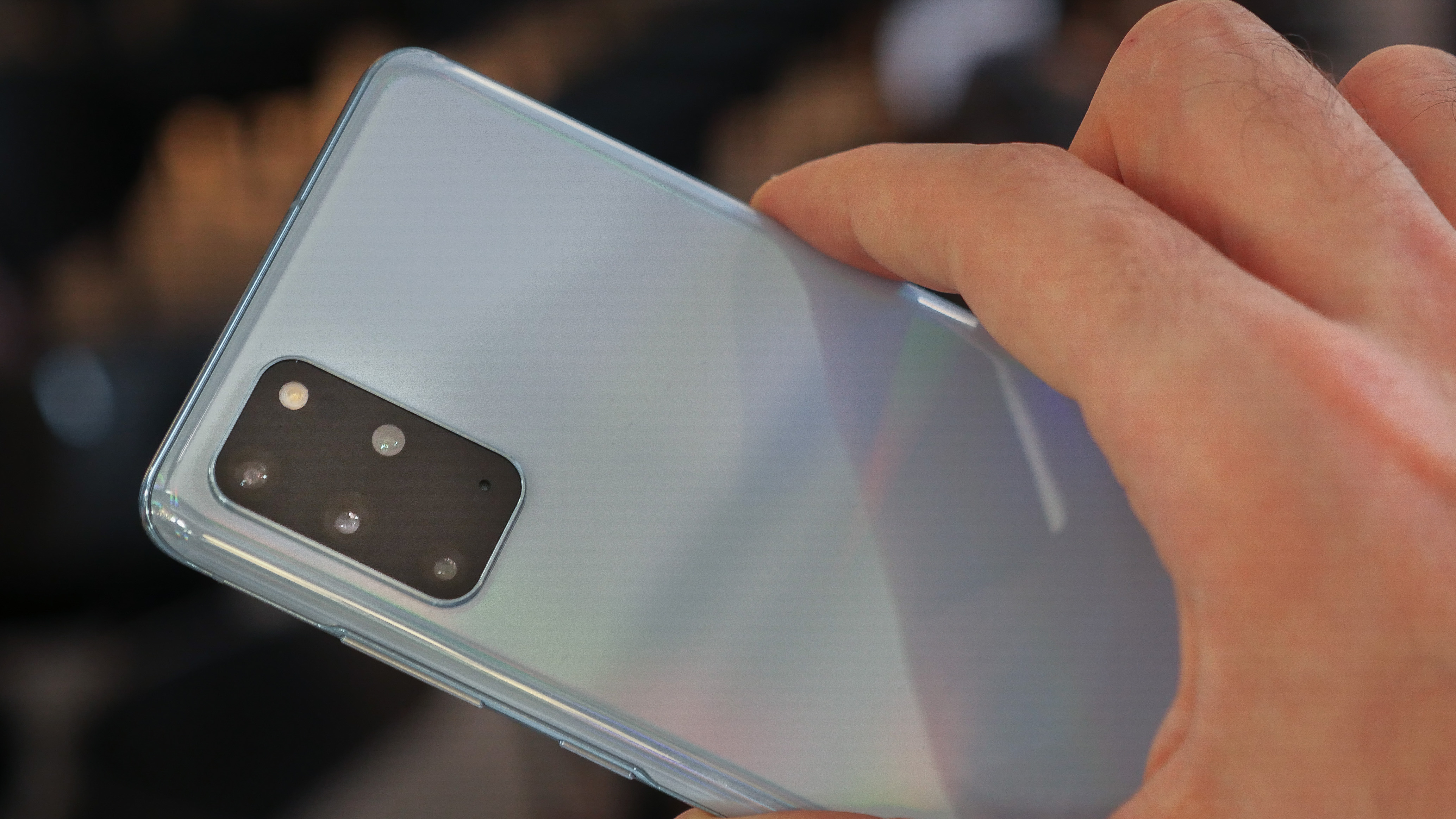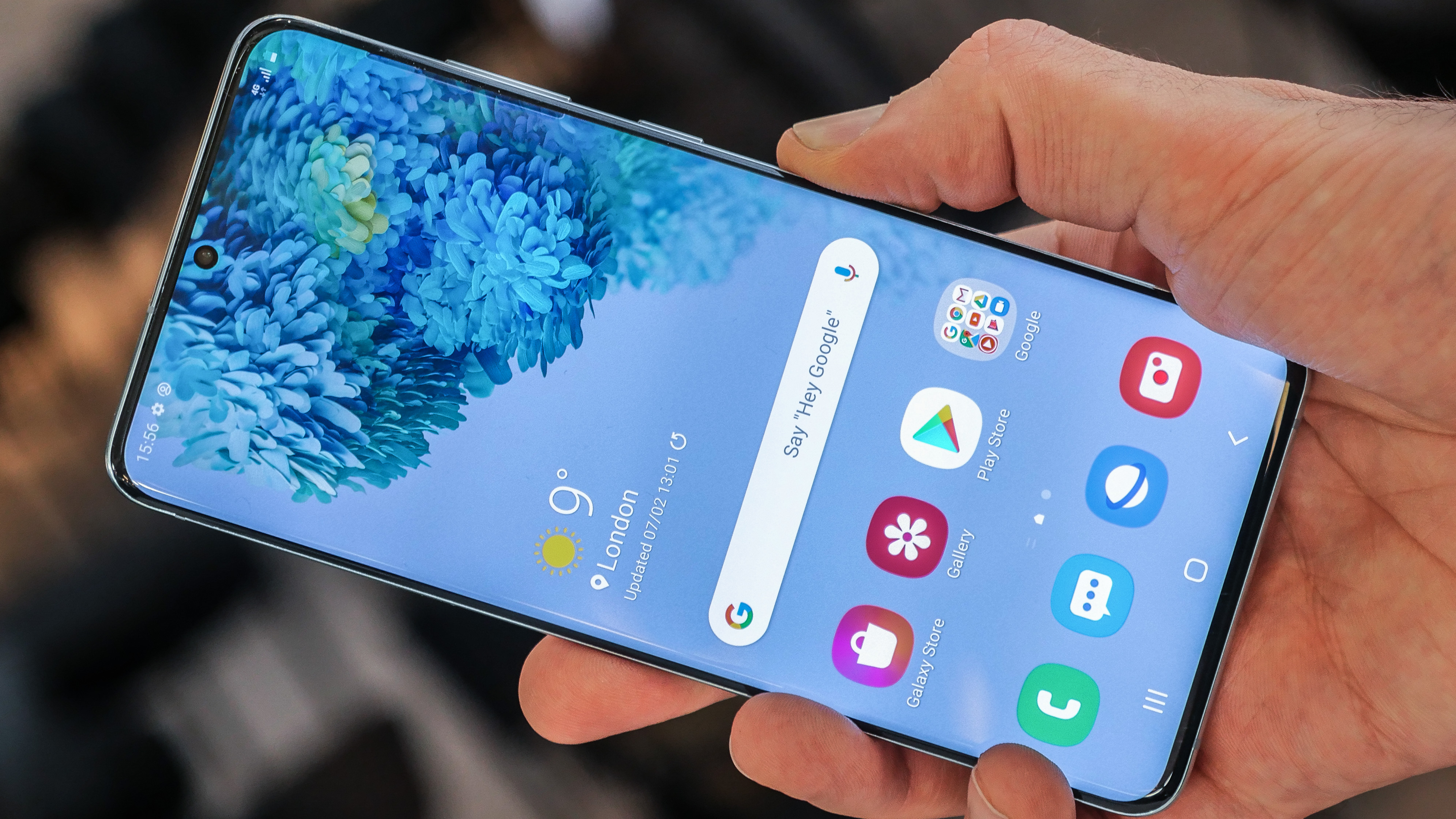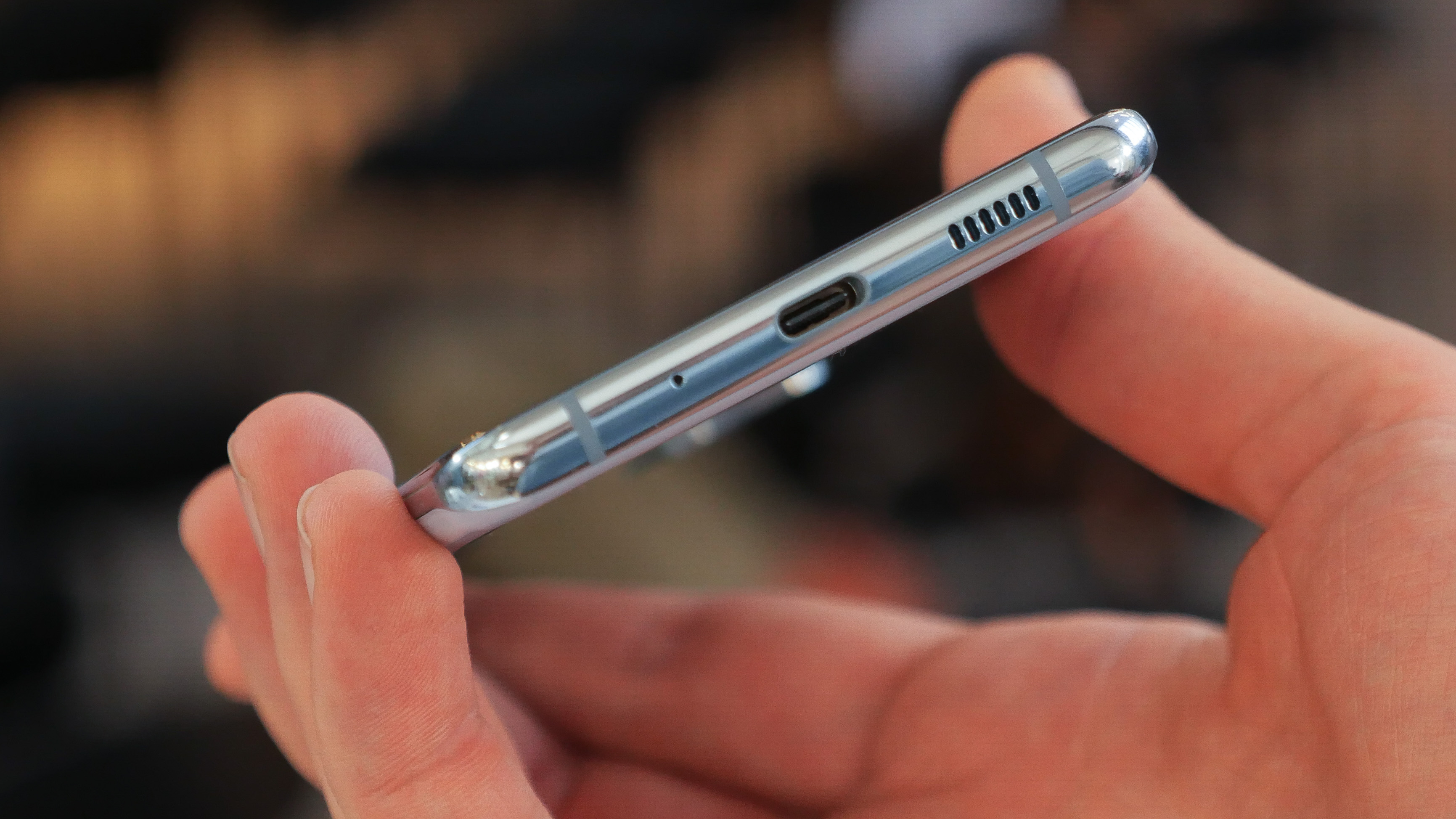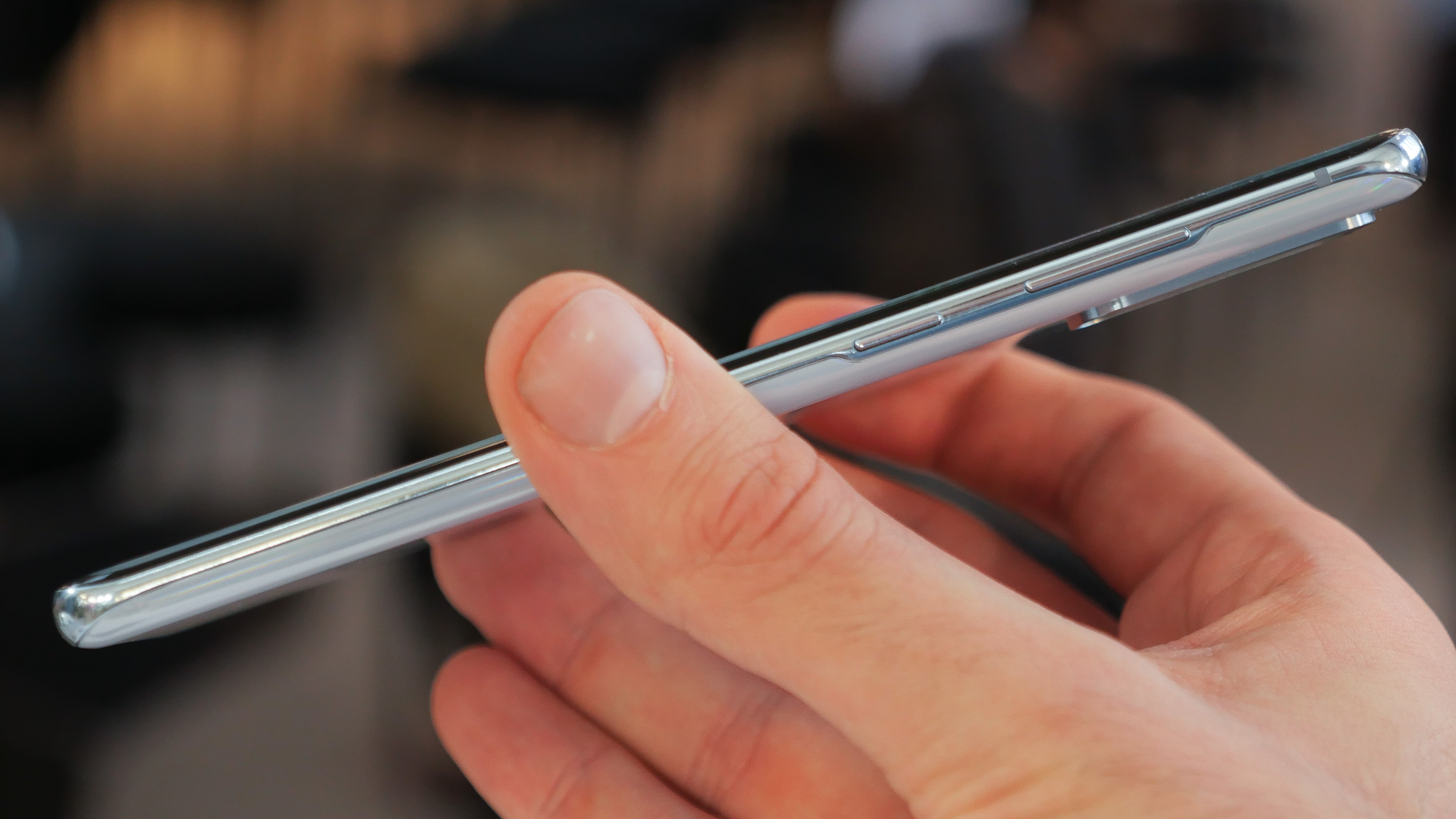Early Verdict
The Galaxy S20 Plus feels like the enthusiast’s phone most Samsung fans will opt for in 2020. It costs less than the S20 Ultra, but delivers the same core user experience - a big 120Hz screen, 8K video capture and a load of smart camera software features, not to mention 5G. Its 12MP main sensor is also less of a gamble than that found in the 108MP S20 Ultra - so while we can’t say anything too conclusive at this stage, we’re expecting great things.
Pros
- +
Competitive 3x optical zoom
- +
Smooth, sharp, big screen
Cons
- -
Very familiar design
- -
No headphone jack
Why you can trust Digital Camera World
The Samsung Galaxy S20 Plus is a 6.7-inch screened 5G smartphone, packing plenty of size, without the beastly, pocket-stretching girth of larger phones like the Huawei Mate 20 X 5G. Weighing 186g, it manages to weigh less than even the entry level 194g iPhone 11, giving it a fantastic screen-size to weight ratio, and making it one of the best balanced multimedia powerhouse smartphones on the scene.
As for the the camera system, this time around, it’s been given a full makeover. You still get a 12MP sensor, only this time, it’s paired with a fixed aperture, f/1.8 lens. While the headline grabbing 108MP sensor is in the Galaxy S20 Ultra, the S20 Plus’s more conservative pixel count could well be the better performer - it’s definitely the safer bet for risk averse early adopters in need of an upgrade.
Samsung Galaxy S20 Plus camera
The S20 Plus’s camera is identical to that of the S20, save for the additional ToF (time of flight) sensor. As mentioned, theerefore, there’s a primary 12MP camera with hefty 1.8μm pixels. Combined with an f/1.8 aperture lens, it’s a competent bit of kit on paper, helped along by OIS.
Has it got what it takes to topple the Google Pixel 4 and iPhone 11 Pro - two phones that outperform the S10 in our best camera phones roundup? Time will tell, but we’re more confident in the S20 Plus’s odds now Samsung’s swapped out the two year old dual aperture approach.
Just because the primary sensor is 12MP, it doesn’t mean the S20 Plus isn’t playbing with big pixel counts - the phone’s 64MP sensor, as found in the Realme X2 Pro has made a return, combined with a 3x telephoto zoom lens. Samsung has loaded the module’s f/2.0 lens with OIS as well - helpful for the phone’s 30x ‘Space Zoom’, which uses both optical and digital zoom to get very close to the action. Additionally, the ultra-wide 120-degree 12MP module is matched with an f/2.2 lens and 1.2μm pixels.
It isn’t just about photos on the S20 Plus, though. The entire S20 line captures up to 8K video, simultaneously grabbing 33MP stills mid-recording. That means if you can decide between video and high-quality stills, you can capture both by hitting the shutter release while the video camera’s rolling.
There’s also a new super steady video mode on the S20s, which activates action camera-grade stabilization, not to mention a manual video mode - finally. Another fun feature that promises to make the best of the smartphone’s AI processing chops is the new Single Take mode. This captures multiple versions of a single clip - live focus blurring out the background, boomerang for sped up and reversed Instagram fodder, Ultrawide content and more. The S20 then displays this 1-minute ‘moment’ as a gallery so you can pick your favourite take, or takes.
The best camera deals, reviews, product advice, and unmissable photography news, direct to your inbox!
Samsung Galaxy S20 Plus: design
Available in three colors, pink, black and blue, the S20 Plus’s design is fine, but, it definitely isn’t particularly stand out to look at. That said, when you get it in your hands, things pick up nicely. Combining rounded Gorilla Glass 6 and 7003-series aluminum, it’s also sealed with IP68 water and dust resistance. At the base is a USB port, on the right are power and volume buttons, and while Samsung’s ditched the S10’s Bixby button (wahay), there’s still no headphone jack (boo).
The real centerpiece of the S20 Plus is that screen - what a beauty, thanks to its. The phone combines a pin-sharp 3200 x 1440 resolution and Dynamic AMOLED quality with 6.7-inch size, resulting in over 500 pixels-per-inch - sharper than any iPhone, it’s. All the S20s are also smoother than iPhones, with their iPad Pro-grade 120Hz refresh rate.
Samsung Galaxy S20 Plus: additional specs
The S20 Plus features 128GB storage that can be boosted by 1TB with a microSD card, 12GB RAM, and an Exynos 990 processor powering the experience along. As for the phone’s battery, there’s a hefty 4500mAh cell inside, and it charges up at a fast, but not class-leading 25W.
Dolby tuned stereo speakers have also made a return from the Samsung Galaxy S10 Plus, as too has the ultrasonic under-display fingerprint scanner and Samsung’s DeX experience, which projects a desktop UI when you hook your S20 Plus to a big screen.
Samsung Galaxy S20 Plus: early verdict
If you want the best looking, biggest screen money can buy but can’t bring yourself to stump up over $1,100 or £1,000, the the S20 Plus could be just within your budget. An across the board powerhouse with an impressive camera array, while the phone may not have a 108MP main sensor, it’s clearly going to be one of the phones to beat in 2020.
Read more
• Smartphone news, camera phone leaks and mobile rumors
• Best budget camera phone in 2020
• The best camera phone in 2020
• The best add-on lenses for iPhone and Android phones
• The best gimbals for your iPhone, GoPro and camera
• The best selfie sticks
Basil Kronfli is a freelance technology journalist, consultant, and content creator. He trained in graphic design and started his career at Canon Europe before moving into journalism. Basil is also experienced in video production, independently running the YouTube channel TechEdit, and during his time at Future, he worked alongside the Digital Camera World team as a senior video producer.
